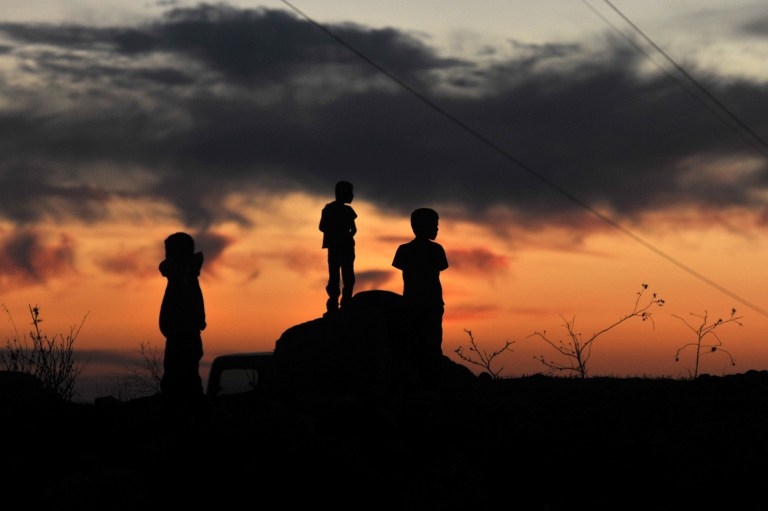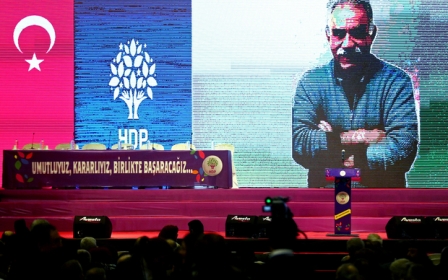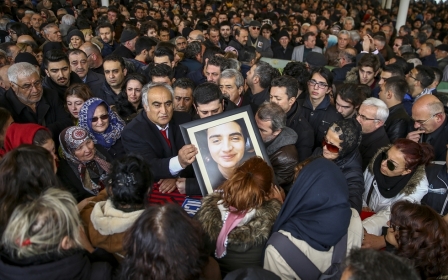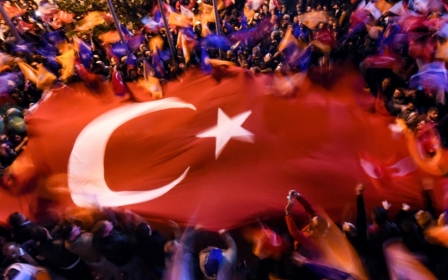The forgotten child soldiers recruited by Kurdish militants in Turkey and Syria

Heavy fighting between the Turkish army and militants of the Kurdistan's Workers Party (PKK), designated as a terrorist organisation by both the US and EU, continues in Nusaybin, a predominantly Kurdish town in southeast of Turkey.
What also appears to be continuing is the PKK's use of child soldiers. Last Wednesday, 25 PKK militants surrendered to the Turkish army in Nusaybin. A day later, another 42 PKK militants surrendered. Some of the PKK militants that surrendered in Nusaybin were reportedly minors.
In Syria, the PKK’s Syrian affiliate, the Democratic Union Party (PYD) and its military wing, the People's Protection Units (YPG), are also reported to be continuing to recruit child soldiers. Of course, this information cannot be easily found in international media, which often ignores negative stories on Kurdish militants and their abuse of children's rights.
In April, a Member of the European Parliament, Alyn Smith, condemned the use of child soldiers, saying: "War is no excuse for the Kurdish PYD to use child soldiers in the battlefield". He added: "The EU is a values-based community and must not turn a blind eye on this, as much as I have made clear we must condemn all violations regardless of their source."
Smith, who sits on the European Parliament’s foreign affairs committee, also urged documenting human rights abuses "including arbitrary detention, ethnic cleansing and the unacceptable use of child soldiers by Kurdish forces".
But you hardly hear many Western officials expressing outrage at such acts, when carried out by the PKK or YPG, even though they may constitute war crimes.
A history of violence
In the past, the PKK even recruited children as young as 8-12 years. In 2010, a Danish national daily newspaper, Berlingske Tidende, published a story about the PKK’s child soldiers. According to that report, there were around 3,000 young militants in the PKK’s training camps. The youngest child at the PKK training camps was eight or nine years old.
The children were taught the life story of the jailed PKK leader, Abdullah Ocalan, and how to use weapons and explosives. After that story was published, the PKK encountered strong reactions from human rights organizations around the world. The same year, UNICEF released a statement voicing its "profound concern" about the PKK’s recruitment of child soldiers.
In October 2013, the PKK, represented by Delal Amed, a commander of PKK military wing the People's Defence Force (HPG), signed the Deed of Commitment protecting children in armed conflict. This document was drawn up by an NGO called Geneva Call that is is dedicated to promoting respect by armed non-state actors for international humanitarian norms in armed conflict. Despite this commitment, the PKK continues to reportedly recruit minors.
In July 2015, a Human Rights Watch report, entitled "Syria: Kurdish Forces Violating Child Soldier Ban", provided a list of 59 children, ten of them under the age of 15, recruited for YPG forces since July 2014.
The trend continues
Last week, news emerged of the death of a notorious recruiter of child soldier, Latife Kaya, codenamed "Cahide", at the hands of the Miranda tribe in Derik, Qamishli in Syria. Kaya had reportedly kidnaped a 17-year-old girl who belongs to one of the powerful families there, in a bid to recruit her for the PYD.
Kaya was wanted by the Turkish police for kidnapping and recruiting children to be child soldiers for more than 10 years. She is accused of recruiting child soldiers for both the PKK and later the PYD in Syria's Qamishli and Afrin. She and her collaborators have reportedly recruited more than 500 minor girls to join the PKK. Kurdish families who refuse to hand over their children to the militants still risk having these children being taken forcibly, and then their losing communication with them. Through conditioning, the PKK ensure these vulnerable childrens' loyalty lies first and foremost with the group's cause, and not their families.
In the areas controlled by the PYD in Syria, there have been some major feuds between strong families of the region and militants over the kidnapping of minor girls.
In May 2014, mothers from across Turkey whose children had been recruited by the PKK held a sit-in protest in front of the Diyarbakır Metropolitan Municipality building and called on the PKK to release their children. Their children were mostly 14-15 years old at that time. Some families claimed that their sons and daughters were kidnapped by the PKK against their will.
HDP indifference
The Diyarbakır Municipality, administered by the pro-Kurdish Peoples' Democratic Party (HDP), used water cannon to disperse the mothers. HDP Co-Chair Selahattin Demirtas even claimed that these mothers were hired by the Turkish National Intelligence Organization. Despite the resistance coming from the PKK and the HDP, the families continued their protest, and some families’ children were released by the PKK.
A search of the PKK’s official gazette, Serxwebun, reveals many stories about child soldiers that have died in battle. The paper used to give the birth dates of these children but discontinued the practice because they want to hide the ages of these children to prevent reaction from human rights organizations. Also, if they use the birth dates of these children, it will reveal the fact that the PKK breaches the Geneva Deed of Commitment. But the photos published in both Serxwebun and Hpg-sehit.com show that these children look no older than 14-15 years.
As Turkish commentator Mehmet Solmaz wrote in Middle East Eye: ''Unlike [with Islamic State militants], where the world rightly condemns its recruitment of child soldiers, the international community seems to be less concerned when Kurdish children are tasked to fight for the PKK or for its other linked groups."
"They think they are doing the Kurdish cause a favour by burying news of the abuse that Kurdish children are undergoing at the hands of PKK militant leaders,'' he added.
The PKK provides two options to Kurdish children: either go to the mountains and die or be killed in there, or surrender to the Turkish state and be imprisoned for many years. The US government sees the PYD as a "reliable partner" in the region. EU countries such as Belgium allows pro-PKK public demonstrations, and Germany and France allow PKK affiliates to open offices in their capitals, yet both the PKK and the PYD commit war crimes by recruiting child soldiers. The international media sees no evil, hears no evil, speaks no evil when it comes to the PKK and the PYD’s child soldiers.
- Beybin Somuk is a reporter for the Turkish news show Şimdi ve Burada. She studied law at Yeditepe University, Istanbul. You can follow her on Twitter @beybinn. A shorter version of this article originally appeared in the website TheKebabAndCamel.com.
The views expressed in this article belong to the author and do not necessarily reflect the editorial policy of Middle East Eye.
Photo: Kurdish children play on a road in Yemisli, Hakkari province in southeastern Turkey, on 22 October, 2011 (AFP).
New MEE newsletter: Jerusalem Dispatch
Sign up to get the latest insights and analysis on Israel-Palestine, alongside Turkey Unpacked and other MEE newsletters
Middle East Eye delivers independent and unrivalled coverage and analysis of the Middle East, North Africa and beyond. To learn more about republishing this content and the associated fees, please fill out this form. More about MEE can be found here.





